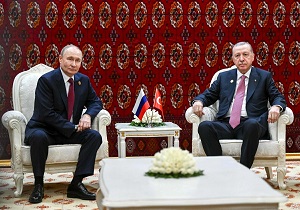Israel Undeterred by International Opposition to Annexation

AFP
Israeli Prime Minister Benjamin Netanyahu appears determined to carry out his pledge to begin annexing parts of the occupied West Bank, possibly as soon as Wednesday.
His vision of redrawing the map of the Holy Land, in line with President Donald Trump's Mideast plan, has been welcomed by Israel's religious and nationalist right wing and condemned by the Palestinians and the international community.
But with opponents offering little more than condemnations, there seems little to prevent Netanyahu from embarking on a plan that could permanently alter the Mideast landscape.
Here's a closer look at annexation:
WHY ANNEXATION, AND WHY NOW?
Israel's right wing has long favored annexing parts or all of the West Bank, saying the territory is vital for the country's security and an inseparable part of the biblical Land of Israel. But most of the world considers the West Bank, captured by Israel from Jordan in the 1967 Mideast war, to be occupied territory, and Israel's dozens of settlements, now home to nearly 500,000 Jewish Israelis, as illegal.
Surrounded by a team of settler allies, Trump has upended U.S. policy, recognizing contested Jerusalem as Israel's capital, moving the U.S. Embassy from Tel Aviv to Jerusalem, recognizing Israel's 1981 annexation of the Golan Heights and announcing that Jewish settlements are not illegal.
Seeking to court hard-line voters on the campaign trail, Netanyahu last year began talking about annexation. After Trump released his Mideast plan in January envisioning permanent Israeli control over 30% of the West Bank, including all of Israel's settlements and the strategic Jordan Valley region, Netanyahu quickly jumped on board. Israel and the U.S. have formed a joint committee to map out precisely which areas Israel can keep.
Netanyahu made sure that under the coalition agreement, he can bring a proposal to the new government anytime after July 1. He appears eager to move forward before the November presidential election, possibly with a limited move billed as a first stage, especially with Trump's re-election prospects in question.
WHY IS THERE SO MUCH OPPOSITION?
The Palestinians seek the entire West Bank as the heartland of a future independent state and believe the Trump plan would deliver a fatal blow to their fading hopes of statehood.
Among the plan's components: The Palestinians would only have limited autonomy in a fraction of territory they seek. Isolated Israeli settlements deep inside Palestinian territory would remain intact, and the Israeli military would retain overall security control over the Palestinian entity.
The international community has invested billions of dollars in promoting a two-state solution since the interim Oslo peace accords of the 1990s. The U.N. secretary general, the European Union and leading Arab countries have all said that Israeli annexation would violate international law and greatly undermine the prospects for Palestinian independence.
WILL ANYTHING CHANGE ON THE GROUND?
Not immediately. Israel has controlled the entire West Bank for more than 50 years. Palestinians will remain in their towns and villages, while Israelis will live in their newly annexed settlements. The Palestinian Authority is protesting annexation but has ruled out any kind of violent response.
But over time, there is a larger risk of conflict.
Netanyahu has said he opposes granting citizenship to Palestinians living on annexed lands, presumably because it would undercut Israel's Jewish majority. But failing to grant equal rights to Palestinians in annexed areas opens Israel up to charges of establishing an apartheid system that would draw heavy international condemnation.
Palestinians who are not living on annexed lands could face other challenges. Moving between Palestinian population centers — or even reaching their own properties and farmlands — could become difficult if they have to cross through Israeli territory. Critics say that Israel could also use its sovereignty to expropriate Palestinian lands.
The Palestinian Authority has already cut off its ties with Israel to protest the looming annexation. In the absence of any peace prospects, the Palestinian Authority could see its international funding dry up or decide to close.
The collapse of the authority could force Israel, as an occupying power, to pick up the tab for governing the Palestinians. In the long term, it could lead to Palestinian and international calls to establish a single binational state with voting rights for all — a scenario that could spell the end of Israel as a Jewish-majority state.
WHY DOESN'T THE INTERNATIONAL COMMUNITY STOP THIS?
U.N. Secretary-General Antonio Guterres has said annexation would mark a "most serious violation of international law." The EU's foreign policy chief, Josep Borrell, has warned of "significant consequences." Jordan and Egypt, the only Arab states at peace with Israel, have condemned the annexation plan. Saudi Arabia and the United Arab Emirates, powerful Arab players with informal relations with Israel, have said warming ties will be in danger.
But Israel and the U.S. appear to be banking on the international community's poor record of translating rhetoric into concrete action. Days after the UAE warned Israel against annexation, for instance, two Emirati companies reached cooperation deals with Israeli partners in the fight against the coronavirus.
Thanks to the U.S. veto over U.N. Security Council decisions, international sanctions appear to be out of the question. Divisions within the EU make concerted European reaction unlikely as well.
Individual countries might seek to impose limited sanctions against Israel, and the International Criminal Court in the Hague could take annexation into account as it weighs whether to launch a war crimes investigation into Israeli policies.
CAN ANYTHING STOP ANNEXATION?
The biggest obstacle to Netanyahu appears to be from within. U.S. officials say they are unlikely to allow Israel to move forward unless Netanyahu and his coalition partner, Defense Minister Benny Gantz, are in agreement.
Gantz, a former military chief and bitter rival of Netanyahu, has said Israel should move carefully and in coordination with regional partners. Gantz laid the groundwork for further delays Monday when he said his top priority is guiding the country through the coronavirus crisis.
"Anything unrelated to the battle against the coronavirus will wait," he said.
Ironically, some hard-line settler leaders have also opposed the plan, saying they cannot accept any program that envisions a Palestinian state.
If the issue remains frozen, time could run out on Netanyahu. The presumptive Democratic nominee, Joe Biden, has said he opposes annexation. A Biden victory in November could mean that any Israeli annexation will be short-lived.
Latest News
-
 Hamas marks 38th anniversary, rejects all forms of guardianship over Palestinians
Hamas marks 38th anniversary, rejects all forms of guardianship over Palestinians
-
 Erdogan warns Black Sea should not be 'area of confrontation' after strikes
Erdogan warns Black Sea should not be 'area of confrontation' after strikes
-
 Indonesia flood death toll passes 1,000 as authorities ramp up aid
Indonesia flood death toll passes 1,000 as authorities ramp up aid
-
 Safadi, UN Chief highlight vital role of UNRWA, call for continued humanitarian aid to Gaza
Safadi, UN Chief highlight vital role of UNRWA, call for continued humanitarian aid to Gaza
-
 'Israel' targets Hamas commander in Gaza strike
'Israel' targets Hamas commander in Gaza strike